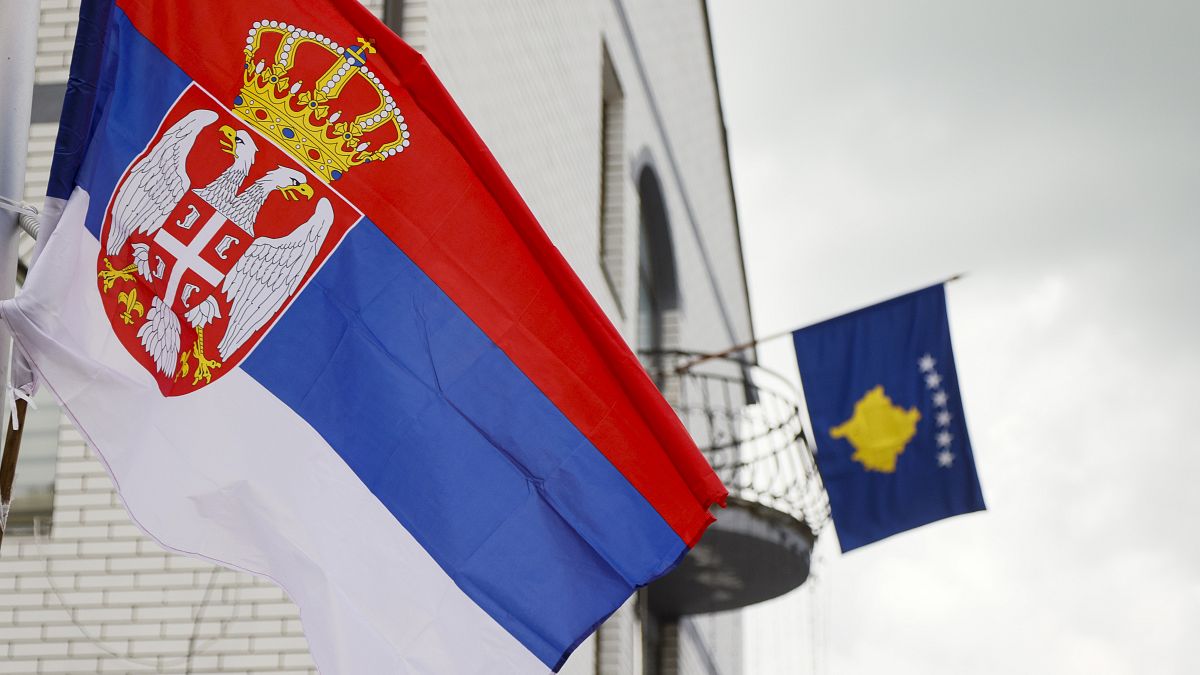Kosovo, a Serbian province, has a long history of tensions between ethnic Albanians and Serbian government forces. The 78-day NATO bombing campaign in 1999 helped push Serbian forces out of Kosovo. Today, the European Union is working to facilitate negotiations between Kosovo and Serbia to normalize relations. The goal is to have both countries join the EU bloc, but tensions remain high, especially following a shootout between Serb gunmen and Kosovo police last year. Both sides need to implement agreements reached last year to move forward.
Miroslav Lajčák, the European Union envoy for the Western Balkans, recently visited Kosovo to discuss the implementation of agreements signed by Serbian President Aleksandar Vučić and Kosovo Prime Minister Albin Kurti. Lajčák stressed the importance of both countries working towards normalization. The Ohrid Agreement is a key document in this process, and Lajčák hopes it will help both countries move forward in their relations with the EU and each other. However, there are still challenges ahead, and tensions remain high between Kosovo and Serbia.
The relationship between Kosovo and Serbia has been strained for decades, and the EU-mediated talks have not made much progress. Recent closures of parallel institutions by Kosovo authorities in the north, where most of the ethnic Serb minority lives, have further escalated tensions. Kosovo’s Serbs have protested against these closures, demanding the withdrawal of Kosovo police from the north and the intervention of international peacekeepers. However, Lajčák has urged them not to block the border crossings, as it would impact freedom of movement.
Kosovo Prime Minister Albin Kurti has also made controversial decisions, such as the closure of Serbia-licensed banks in northern Kosovo, leading to disagreements with Western powers. The city of Mitrovica, divided into a Serb-dominated north and an ethnic Albanian south, remains a flashpoint for tensions. Kurti called for the full reopening of a bridge in Mitrovica, which could further escalate tensions with the minority Serbs. The international community is concerned about the potential for inter-ethnic conflict to flare up again in the region.
The EU is working to facilitate high-level meetings between the leaders of Kosovo and Serbia to address these issues and move towards normalization. Lajčák’s mandate has been extended until January to continue these efforts. The ultimate goal is for both countries to join the EU bloc, but there are many challenges to overcome. Tensions between Kosovo and Serbia are high, and the risk of renewed violence remains. Both sides need to commit to implementing agreements and working towards a peaceful resolution to their long-standing conflicts.
In conclusion, Kosovo and Serbia have a complex history of ethnic tensions and conflict that have yet to be fully resolved. The EU is playing a crucial role in mediating talks between the two countries to normalize relations and pave the way for EU membership. However, challenges remain, and tensions are high, especially following recent incidents that have escalated the situation. Both sides need to work together to implement agreements, ensure freedom of movement, and prevent a resurgence of violence in the region. Only through continued dialogue and cooperation can Kosovo and Serbia move towards a peaceful and stable future.











